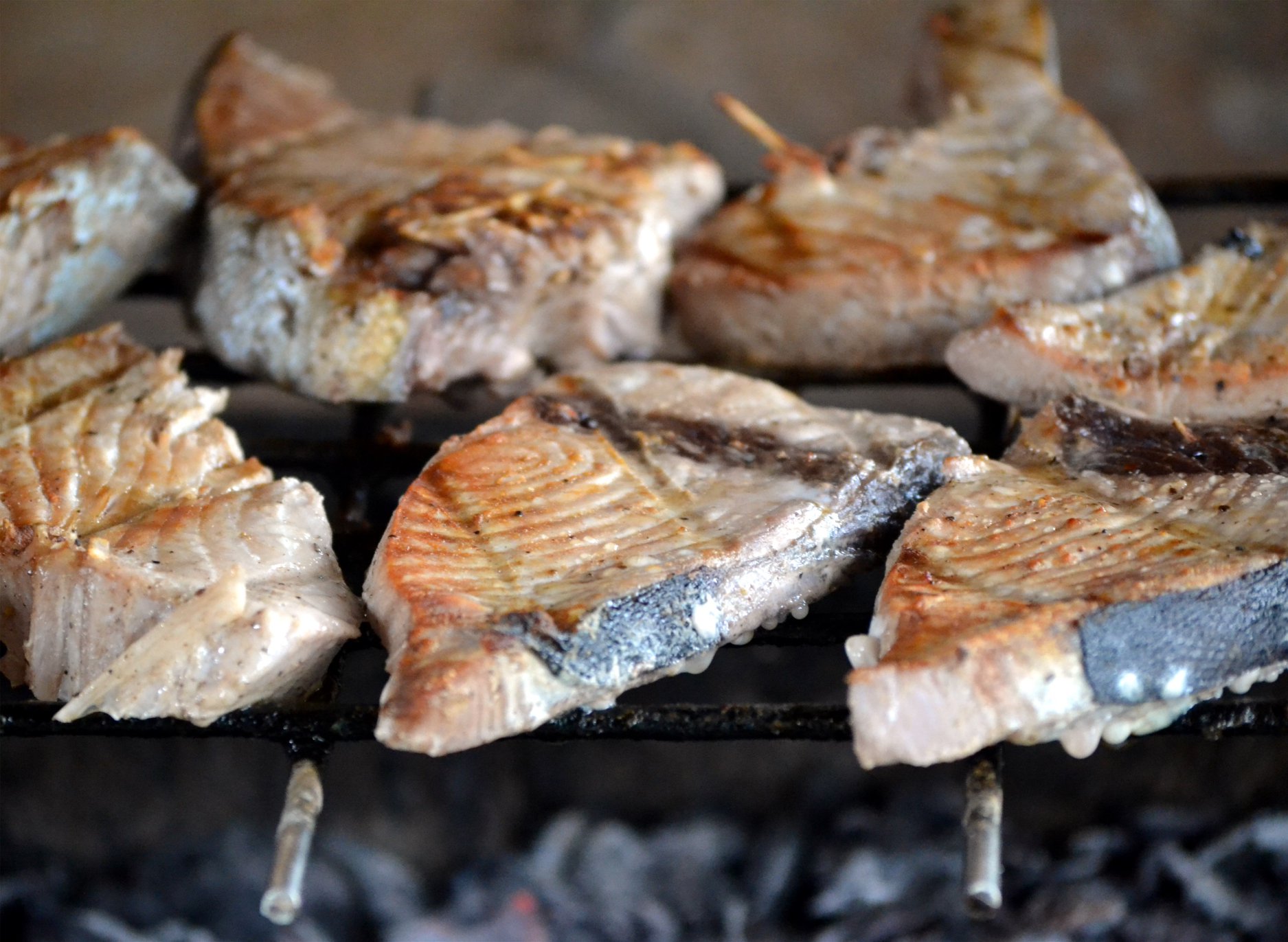Text and Photos by Henrylito D. Tacio
Additional Photo: webMD.com
Most religions use periods of fasting as a means of demonstrating faith or penitence and an opportunity for spiritual reflection.
“Fasting is common to just about every major religious tradition, like Buddhism, Christianity, Hinduism, Islam, and Judaism,” says webMD.com. “During Ramadan, many Muslims fast from dawn to sunset, every day for a month.”
Fasting has also historically been a means to express political views and a form of protest. In recent years, fasting has become popular as a healing medium. “In ancient Greece, Hippocrates believed it helped the body heal itself,” webMD.com says.
“Fasting is the greatest remedy – the physician within,” said Philippus Paracelsus, one of the three fathers of Western medicine. “Instead of using medicine, better fast today,” Plutarch, a Greek biographer and moralist, suggested.
In the Christian context, fasting is simply abstaining from food for spiritual reasons. At times, fasting means abstinence from drinking liquids as well – a total fast for a brief period.
“Fasting does not necessarily suggest depriving the body of all food,” explains Amber Keefer, who has more than 25 years of experience working in the fields of human services and health care administration. “Sometimes a fast includes a short period of abstinence from eating just certain foods. Fasting does not mean starving yourself. What it does mean to some people is timing when you eat, and then eating specific foods in moderation.”
Writing professionally since 1997, Keefer has written articles covering health, fitness, and women’s issues and published such publications as Family Digest Magazine. In her article, she adds, “Consuming enough fluids throughout any fast is important to prevent dehydration. Although fasting can be a controversial issue, the value of physiological fasting as a treatment for many chronic health conditions continues to be studied.”
Technically speaking, fasting commences within the first twelve to twenty-four hours of the fast. A fast does not chemically begin until the carbohydrate stores in the body begin to be used as an energy source. The fast will continue as long as fat and carbohydrate stores are used for energy, as opposed to protein stores. Once protein stores begin to be depleted for energy (resulting in loss of muscle mass), a person is technically starving.
For people who want to fast, here’s a word of warning from Keefer: “During a fast, a person needs to consume adequate calories for health in order to avoid becoming malnourished. However, if not done correctly, doctors warn that fasting may be dangerous to one’s health.”
There are some people who experience headaches or joint pain during the first few days of fasting. Other adverse effects of fasting may include fatigue, dizziness, and weakness. “If you feel tired or weak during a fast, you should rest,” Keefer suggests. “A juice fast is considered to be a safer alternative because the body gets enough nutrients. Fruit and vegetable juices are also easy to digest.”


Despite the controversy that surrounds fasting, a lot of people still do it. “Due to (the) effects of fasting, a fast can help you heal with greater speed; cleanse your liver, kidneys, and colon; purify your blood; help you lose excess weight and water; flush out toxins; clear the eyes and tongue; and cleanse the breath,” wrote Dr. James F. Balch in Prescription for Nutritional Healing.
Obesity is now becoming a health problem, and most people try to lose excess weight. Fasting is seen as one possible solution. But most medical experts say: that fasting is not a healthy weight loss tool. “The appeal is that (fasting) is quick, but it is quick fluid loss, not substantial weight loss,” explains Dr. Madelyn Fernstrom, founder, and director of the University of Pittsburgh Medical Center’s Weight Loss Management Center.
Some nutrition professionals think of it as a recipe for disaster, setting up a person for binge eating and metabolic confusion. Ruth Frechman, a registered dietitian in Burbank and spokeswoman for the American Dietetic Association, says she frequently sees such extreme strategies backfire. “You’re hungry, fatigued, and irritable. Fasting is not very comfortable. People try to cut back one day and the next day they’re starving and they overeat.”
Detoxification is the foremost argument presented by advocates of fasting. “There is no scientific evidence it will detox the body. The issue of fasting to cleanse the body has no biological basis because the body is really good at that by itself,” says Dr. Fernstrom. “The liver is a natural detox center; the lungs, the colon, the kidneys, (the lymph glands) and the skin get rid of toxins.”
But Dr. Joel Fuhrman, author of Eat to Live: The Revolutionary Plan for Fast and Sustained Weight Loss and Fasting and Eating for Health, disagrees. He has supervised hundreds of patients’ fasts for medicinal purposes. “We know that the body is unable to rid itself of toxins when we eat a diet low in nutrients,” he points out.
One issue on which there is medical agreement is the benefit – actually, the necessity – of fasting before surgery. “You don’t want the body to be digesting food as it manages the slower breathing (and other body changes) under anesthesia,” says Dr. Fernstrom.
Fasting is also required to get accurate readings for certain medical tests. Short-term fasting before tests for cholesterol and blood sugar levels, for example, helps achieve a more accurate baseline count.
Fasting advocates also claim that the practice can effectively treat serious health conditions, from arthritis to depression. In his practice, Dr. Fuhrman says he has seen fasting – combined with improving the diet before and afterward – eliminate lupus, arthritis, and chronic skin conditions.
“Fasting followed by a vegetarian diet interferes with the immune system’s activities, especially if the immune system is overreacting, as it does with,” and other auto-immune diseases, Dr. Fuhrman says, citing half a dozen studies published in medical journals ranging from the American Journal of Physiology-Endocrinology and Metabolism to the Scandinavian Journal of Rheumatology.
Fasting once a month for two meals or more may reduce the risk of heart disease, according to Dr. Benjamin Horne. Fasting also seems to reduce the risk of developing diabetes and Alzheimer’s disease. “What our evidence suggests is that nerve cells in animals that are on dietary energy restriction are under mild stress. It’s a mild stress that stimulates the production of proteins that protect the neurons against more severe stress,” explains Dr. Mark. P. Mattson from the US National Institute on Aging.
Fasting may yield psychological benefits as well. “I use very brief fasting with my patients to help them cope with stress and depression,” says Agnese Barolo, a life coach in contemplative practices in New Rochelle, New York. “I start them with just a few hours so they learn to say no to food. It’s the first step in taking control of their lives.”
Barolo adds, “I know some doctors say there is no scientific evidence for the curative powers of fasting. But there is a reason every culture in every country has practiced some forms of fasting for thousands of years.”
Finally, here’s a final word from Dr. Fuhrman. In his book, in Fasting and Eating for Health, he wrote: “Therapeutic fasting is not a mystical or magical cure. It works because the body has within it the capacity to heal when the obstacles to healing are removed. Health is the normal state. Most chronic disease is the inevitable consequence of living a life-style that places disease-causing stressors on the human organism. Fasting gives the body an interlude without those stressors so that it can speedily repair or accomplish healing that could not otherwise occur in the feeding state.”
A bit of caution, though: Even short-term fasting is not recommended for people with diabetes because it can lead to dangerous dips and spikes in blood sugar. Women who are pregnant or breastfeeding, or anyone with a chronic disease, should not fast.

